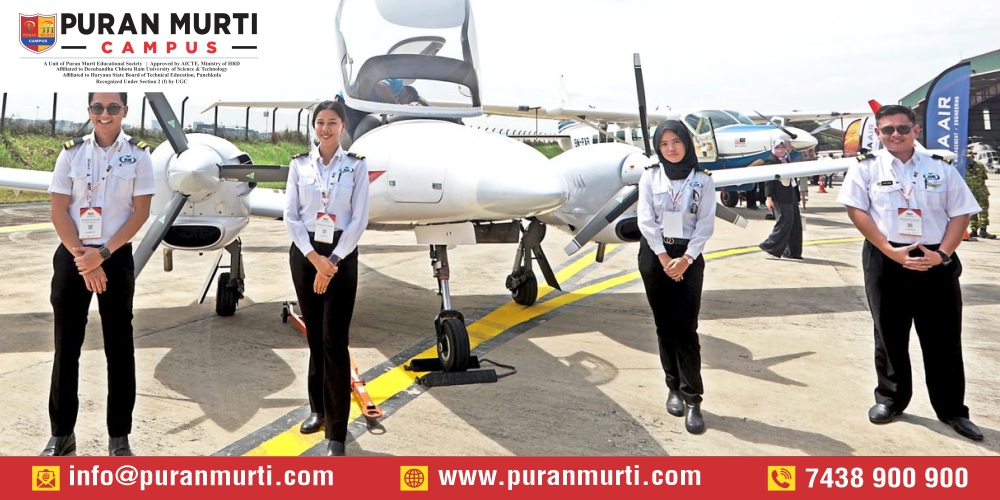Mastering the Aviation Industry: The Value of an MBA
Posted on : 1 July, 2024 11:28 am
Introduction
- The aviation industry is experiencing rapid growth and transformation, making effective management more critical than ever. Aviation management encompasses various aspects, including operations, safety, finance, and customer service, requiring professionals to have a comprehensive skill set. An MBA in Aviation equips individuals with the necessary expertise to navigate this complex field, addressing challenges such as regulatory compliance, technological advancements, and sustainability. By understanding the intricacies of aviation management, professionals can drive efficiency, enhance safety, and improve overall performance, ensuring the industry’s continued success and innovation.
Understanding the MBA in Aviation Curriculum
- The MBA in Aviation curriculum blends core business principles with specialized aviation courses. Students study subjects like aviation economics, airline management, airport operations, and aviation law. The program also covers strategic management, marketing, finance, and human resources, tailored to the aviation industry’s needs. This comprehensive approach prepares graduates for leadership roles in various aviation sectors.
The MBA Advantage
- An MBA in Aviation offers a strategic edge, combining business acumen with industry-specific knowledge. Graduates gain expertise in management, finance, and operations, tailored to the aviation sector. This dual focus enhances career prospects, opening doors to leadership roles in airlines, airports, aviation consulting, and regulatory bodies, ensuring a competitive advantage in a dynamic industry.
Strategic Management and Decision Making
- Strategic management and decision-making are crucial in aviation, involving the analysis of industry trends, competitive landscapes, and internal capabilities. This process ensures that aviation professionals can make informed decisions, optimize operations, and drive organizational growth. By developing strategic thinking skills, graduates are equipped to tackle complex challenges and lead their organizations to long-term success in the aviation sector.
Financial Management in Aviation
- Financial management in aviation involves budgeting, forecasting, and analyzing financial performance to ensure the profitability and sustainability of aviation operations. It includes managing costs, revenues, and investments while complying with industry regulations. Effective financial management helps aviation professionals make informed decisions, optimize resources, and drive growth in a highly competitive and dynamic industry.
Aviation Safety and Security Management
- Aviation safety and security management focuses on implementing and overseeing procedures to protect passengers, crew, and aircraft. It involves risk assessment, regulatory compliance, emergency response planning, and continuous monitoring of safety protocols. Effective management ensures the highest standards of safety and security, minimizing risks and enhancing the overall safety culture within the aviation industry.
Technological Advancements and Innovation
- Technological advancements and innovation in aviation are transforming the industry. Cutting-edge developments like AI, IoT, and advanced materials improve aircraft performance, safety, and efficiency. Innovations in navigation systems, fuel efficiency, and automation are revolutionizing air travel, making it more sustainable and reliable. These advancements drive the continuous evolution of aviation, ensuring a safer and more efficient future.
Sustainability and Environmental Management
- Sustainability and environmental management in aviation focus on reducing the industry’s carbon footprint. Initiatives include developing fuel-efficient engines, using sustainable aviation fuels, and implementing green airport practices. Environmental management systems help monitor and reduce emissions, waste, and noise pollution, ensuring the industry meets global sustainability goals and contributes to a healthier planet.
Career Opportunities and Growth Potential
- An MBA in Aviation opens diverse career opportunities, including airline management, airport operations, aviation consulting, and aviation finance. Graduates can pursue roles as aviation executives, safety managers, or strategy consultants. The industry’s growth potential offers a dynamic career path with opportunities for leadership, innovation, and contributing to the evolving landscape of global aviation.
Conclusion
- An MBA in Aviation provides a strategic edge in the dynamic aviation industry. It equips graduates with essential skills in management, safety, finance, and sustainability, preparing them for leadership roles. With the industry’s rapid growth and technological advancements, career opportunities are abundant, from airline and airport management to aviation consulting and finance. This specialized MBA ensures professionals are well-prepared to navigate the complexities of the aviation sector, drive innovation, and contribute significantly to its future development and success.

